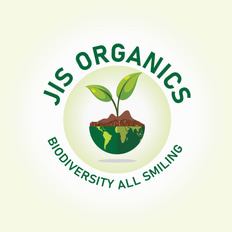
Soil Erosion management
Soil sampling, testing and Interpretation
Conservation Agriculture and Permaculture
Organic farming
Climate Smart Agriculture Practices
Soil drainage management
Irrigation establishment
Soil surveying
Restoration of degraded/poorly functional soils
Development of farm specific soil management plans
Supply of Organic Pesticides/fertilizers
Soil drainage management

Capacity Building
Members of OrganiSol using participatory approaches to train farmers
Capacity building
We employ participatory approaches to train farmers in Maji Refugee Settlement on constructing contour lines and terraces as soil and water conservation practices. These methods are crucial for adapting to climate change. Contour ditches effectively retain water and facilitate gradual water infiltration into the soil while also capturing soil, runoff water, nutrients, and sediments. The two pictures below can be used to illustrate terracing and contour farming




Soil Drainage Management
To produce healthy crops, agricultural drainage is required to remove excess water from the perched or regional water table. Too much water deprives plant roots off oxygen and subsequently leads to stunted growth of roots and plants. Since water suffocated plants develop short roots, they are prone to water stress and wilting in the dry season.


Organic Farming
We advocate for farming methods that are friendly to the soil and biodiversity such as organic farming, conservation tillage and agro-forestry. However, we also encourage the use of Integrated systems where necessary such as the use of Integrated Pest and Disease Management. Synthetic chemicals are the least of our management choices.


Restoration of soil
Restoration of degraded soils to improve agricultural productivity. Soils can be degraded by compaction, frequent use of chemicals, soil erosion, deposition of industrial wastes, etc. Such soil degradation affects soil health and makes it less productive. Depending on the type of degradation, OrganiSol is available to help farmers restore their degraded soils.


Drip Irrigation
One of our staff setting up drip line irrigation systems as an adaptive strategy to the effects of climate change. We help farmers set up the right irrigation systems that are suited to their soil needs. Micro-irrigation systems have the best water use efficiency for effective soil moisture control and plant growth




Organic Fertilisers
At OrganiSol, we train smallholder farmers to adopt the use of low cost organic fertilisers such as urine, ash, and biochar. Urine alone contains 1-8g of Nitrogen per litre and can be easily diluted with water to be applied in Agricultural fields. Click the link to follow our youtube tutorial on the use of Urine, Ash and Biochar as fertilisers and soil ammendments.
We also train farmers on how to make their on fertilisers. Click the link below to learn the simplest ways of making your own organic fertilizer. Video One Video Two Video Three
Soil Sampling and Testing
In order to know the right amount of nutrients to be applied to your soil, we always recommend the need for soil tests. Soil testing and the right soil diagnosis are good for sustainable soil health and quality management. In this way, the right amount of nutrients will be added to the soil. The soil food web should not be destroyed by applying excess fertilizers. Watch Video Here




Water Conservation
A vertical drainage system that has been constructed to drained fields downslope. The drained water can be diverted to tanks and used for irrigation in times of water scarcity. The recycling of water is very important in the current prolonged dry spells.
Cover Crops
Rotating cereals with legumes is one of the best fertility management practices. Cover crops add nutrients, traps run off, retains nutrients and sediments and improves soil water infiltration watch video here




Pastures
We always advocate for appropriate stocking densities among our farmers to minimize soil exposure resulting from overgrazing and to reduce compaction. Furthermore, we provide guidance on the sustainable management of pastures.


